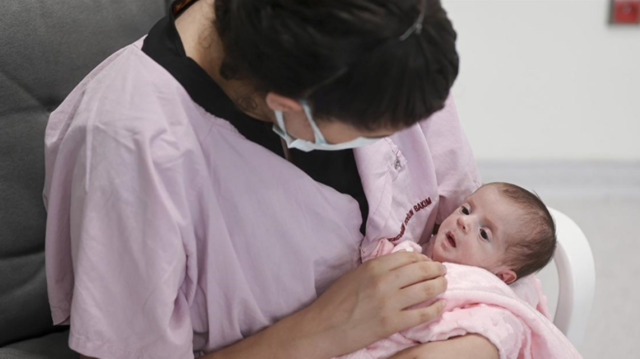
An estimated 13.4 million babies, or around 1 in every 10, were born prematurely in 2020, according to a detailed study published on Friday.
"Since prematurity is the leading cause of death in children’s early years, there is an urgent need to strengthen both care for preterm babies as well as prevention efforts – particularly maternal health and nutrition – so as to improve childhood survival," said the study, done by authors from the World Health Organization (WHO), UNICEF, and the London School of Hygiene and Tropical Medicine.
It said children who undergo live preterm birth have a significantly higher likelihood of suffering major illnesses, disability and developmental delays, and even chronic diseases as adults like diabetes and heart conditions.
"No region of the world has significantly reduced rates of preterm births over the last decade," the report underlined, noting that the annual global rate of reduction in preterm births between 2010 and 2020 was just 0.14%.
Stressing that preterm babies need special care and attention, Anshu Banerjee, director of maternal, newborn, child and adolescent health and ageing at the WHO, said: "These numbers show an urgent need for serious investment in services available to support them and their families as well as a greater focus on prevention – in particular, ensuring access to quality health care before and during every pregnancy."
The paper, which analyzed national, regional, and global estimates of preterm births between 2010 and 2020, found that around 65% of preterm births in 2020 occurred in sub-Saharan Africa and southern Asia, where over 13% babies were born after 37 full weeks of pregnancy.
The rates in the worst-affected countries – Bangladesh (16.2%), Malawi (14.5%), and Pakistan (14.3%) – are three or four times higher than those in the least-affected countries – Serbia (3.8%), Moldova (4%), and Kazakhstan (4.7%) – according to the study.
It noted that preterm birth is not solely an issue for low and middle-income countries. In fact, rates of 10% or more are present in some high-income countries, including Greece (11.6%) and the US (10%).
Maternal health risks, like adolescent pregnancy, infections, inadequate nutrition, and pre-eclampsia, have a significant correlation with preterm births, it said, and added that it is crucial to provide quality antenatal care that can aid in identifying and handling complications, ensuring accurate pregnancy dating through early ultrasound scans, and if necessary, prolonging labor with authorized treatments.













